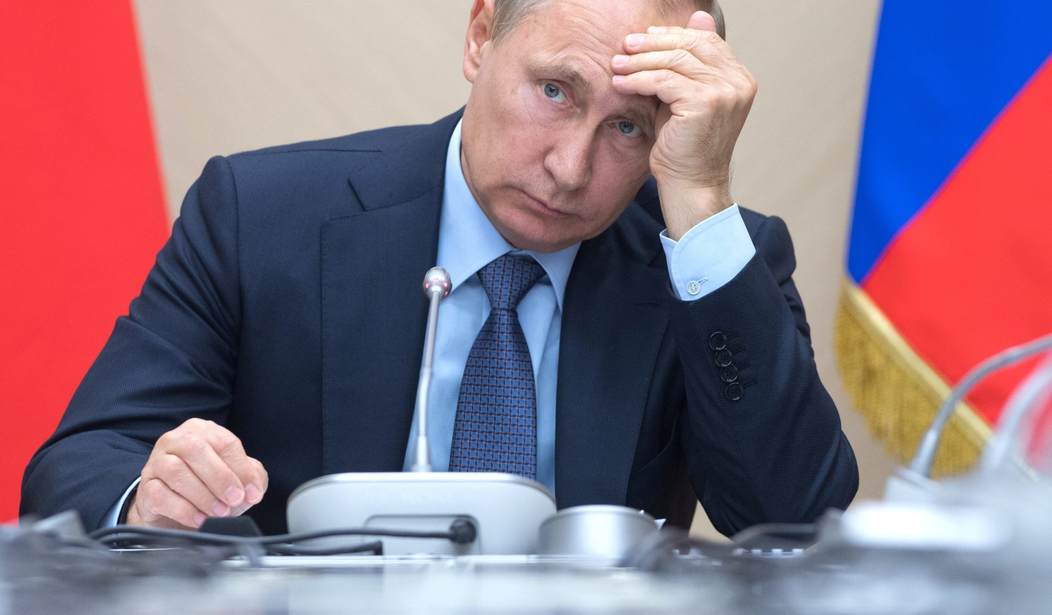WASHINGTON — Lawmakers in the House have struck a deal to advance Russia sanctions legislation that overwhelmingly passed the Senate, with Dems relieved that the text still includes a congressional review provision before President Trump can roll back any sanctions on Moscow.
The final, veto-proof tally on the Countering Iran’s Destabilizing Activities Act of 2017 in the mid-June Senate vote was 98-2, with Sens. Rand Paul (R-Ky.) and Bernie Sanders (I-Vt.) dissenting. An amendment to maintain and increase punitive sanctions on Moscow while requiring rollback approval was passed with only Paul and Sen. Mike Lee (R-Utah) voting against it.
The White House has reportedly been trying to get House Republicans to water down the language in the bill that also toughens sanctions on Moscow, saying the administration must retain foreign policy flexibility — a similar argument that the Obama administration made against lawmakers’ insistence on reviewing and voting on the Iran nuclear deal.
As the Senate was taking action, Secretary of State Rex Tillerson told the House Foreign Affairs Committee that while he agreed “with the sentiment that has been conveyed by several members from both parties that Russia must be held accountable for its meddling in U.S. elections,” he “would urge Congress to ensure any legislation allows the president to have the flexibility to adjust sanctions to meet the needs of what is always an evolving diplomatic situation.”
Once the legislation went to the lower chamber, the House Ways and Means Committee held it on the charge that it could be a “blue slip” violation — running afoul of the origination clause requiring revenue-generating measures to originate in the House — even though senators said they worked with the House early in the process to clear up any such issues.
Frustrated with the stall, House Foreign Affairs Committee Chairman Ed Royce (R-Calif.) began drafting a House-originated version. Today, he and Majority Leader Kevin McCarthy (R-Calif.) announced an agreement that added sanctions on North Korea to the Iran-Russia package.
“The bill the House will vote on next week will now exclusively focus on these nations and hold them accountable for their dangerous actions,” McCarthy and Royce said.
A two-thirds majority vote will be needed to make the bill veto-proof. Under the expedited process by which the bill will come to the floor, it will also need a two-thirds majority to pass.
In the original GOP version of the legislation, only the majority party would be able to force a vote on any sanctions rollback by Trump. In the final product, either party would be able to introduce a disapproval resolution.
“The legislation ensures that both the majority and minority are able to exercise our oversight role over the administration’s implementation of sanctions. Other changes made to the bill will ensure effective and unified implementation among partners and make provisions more workable,” said Minority Whip Steny Hoyer (D-Md.), who said he’s “pleased” with the agreement.
Sen. Robert Menendez (D-N.J.) said today that though it’s “unfortunate that some of our colleagues sought to weaken the bill at the behest of special interests,” he believes the bill “sends a clear message to the president that Congress is prepared to act with a united voice.”
The House action comes as the Kremlin has stepped up its pressure to get the White House to return New York and Maryland compounds that intelligence officials say were used for espionage operations, and administration officials have indicated they’re receptive to the request.
In response to the intelligence community assessment that Russia conducted an extensive campaign influence operation during the presidential election season and at times violent harassment of U.S. diplomatic personnel in Russia, President Obama in December gave 35 Russian officials 72 hours to leave the country and shut down the Maryland and New York estates. Officials searching the homes afterward reportedly found the remnants of destroyed intelligence materials and related equipment after the Russians quickly cleared out in less than a day.
Presidential advisor Sebastian Gorka told CNN recently that the administration is considering giving the compounds back to Russia “because we want to give collaboration, cooperation a chance.”









Join the conversation as a VIP Member